Landscape Designer or Landscape Architect?
Can anyone tell me what is the difference? I am considering this field and I'm not sure what I difference in schooling ia either.
Comments (21)
forensicmom
Original Author12 years agolast modified: 9 years agoI forgot to mention that I'm in my early 40's with 4 kids and going to school full time is going to be difficult. I know Landscape design takes less schooling but what is the difference in salary?
I've been gardening for years and am a master gardner. I would like to make this into a second career and be able to make money while working (somewhat) from home). I'm just not sure where to go or what to do.
laag
12 years agolast modified: 9 years agoA landscape architect is a landscape designer who holds a license (in 49 states). The requirements vary from state to state, but most require a minimum of a Bachelor's Degree in Landscape Architecture, two years of internship working full time under the direct supervision of a landscape architect, and the passing of the Landscape Architect Registration Exam (LARE).
There are two types of licensing - each state has either one or the other. There is what is called a "Title Act" which simply limits the use of using the term "landscape architect" (and any variant of it) to those who have a license in that state. The other is a "Practice Act" which not only limits the use of the term, but also limits who is allowed to "practice" landscape architecture.That is the technical difference.
There will be a multitude of opinions of what the practical difference is based on peoples perspectives. The reality is that landscape design is a diverse field and there are specific niches within it whether or not someone is a landscape architect or not. One can not honestly say that "landscape designers do this" or "landscape architects do that".
There are great people doing great things with and without landscape architecture licenses.
My opinion of what one gets out of licensing often gets other LAs upset with me (I am licensed). The biggest benefit is not the license. It is what is learned in going through the process of getting licensed. It forces one to learn things they had no interest in, to get practical experience doing things they would otherwise avoid, and to deal with issues that also might be avoided. That brings awareness, understanding, and an ability to rectify issues that go beyond what some others would.
The general public has no idea what the difference is (as you know). One of the perceptions that students and recent graduates in landscape architecture is that when they get licensed they expect that everyone wants to hire them over unlicensed designers simply because they have a stamp and letters after their names. While it will add some credibility prior to initial meeting, it always comes down to whomever removes the most doubt from the outcome of the project. Having the education and experience gained through the licensing process should give one the knowledge, portfolio, and communication skills to do that, but many people gain their knowledge, skills, and abilities in other ways which can make them the right choice for the right job.
The education is very broad. A small amount of it is horticulture related and planting design oriented. More of it is design process, planning, and site engineering.
If the intent is to do residential design/build, I would steer the student toward a more focused education in an Ag school because the education is more specific to that end. LA degrees have a great deal of time devoted to regional planning and issues unrelated to residential design. However, the years in studio applying design process changes the way one thinks and addresses issues almost by rote - that is a good thing.
Becoming am LA is a long process and the exam sections are not easy and expensive. Currently, it is very difficult to get internships because of the lull in the economy. Believe it or not, they are having trouble getting free internships because few offices have the resources to manage the intern. There are a ton of recent grads and others who have been laid off sitting on the sidelines waivering on pursuing another career or waiting out the lull because they can't get their internships complete in order to get licensed.
What does the student hope to do as a career?
Related Professionals
Grand Haven Landscape Architects & Landscape Designers · Roxbury Crossing Landscape Architects & Landscape Designers · Allentown Landscape Contractors · Wilmington Landscape Contractors · Hannibal Landscape Contractors · Morrisville Landscape Contractors · Pine Hills Landscape Contractors · Sammamish Landscape Contractors · Tehachapi Landscape Contractors · Tewksbury Landscape Contractors · Chandler Decks, Patios & Outdoor Enclosures · New Lenox Decks, Patios & Outdoor Enclosures · North Myrtle Beach Decks, Patios & Outdoor Enclosures · Sudley Swimming Pool Builders · Midwest City Swimming Pool Buildersgardengal48 (PNW Z8/9)
12 years agolast modified: 9 years agoLandscape architecture is a degreed professional program that typically requires a period of apprenticeship and then testing before licensure, similar to attorneys passing the bar exam before they can practice. And while LA's can take on any landscape design project, including smaller residential ones, they generally concentrate on larger scale commercial, public and planning projects that require an LA stamp. Bigger projects typically result in bigger incomes :-)
There are no uniform regulations associated with landscape design. Technically, anyone who wants to call themselves a landscape or garden designer can, formal schooling or not. Local authorities generally require at least a business license but even that is not always a given......many "designers" fly below the radar and get away without any kind of formal training or professional credentials. The field is wide open with respect to training, experience and professional responsibility.
To become an LA, one must graduate from an accredited 4 year college. Landscape design certificates/degrees are most often a two year program and available through technical and community colleges, sometimes agricultural colleges, larger botanical gardens and online. The cost of these types of educational training tend to be significantly less than attending a 4 year college or university. Income from this type of career track is as wide as the folks who follow it - some well-qualified, locally well-known and seriously dedicated individuals can make a very nice living as a landscape designer. Others just barely get by :-) Or use the profession as a supplemental source of income, working from home or in some sort of association with a larger design/build company or retail garden center.
Based just on your brief outline of your situation, I'd guess landscape design is the path most suited to you. This is something you could pursue online or on a part-time basis, as many schools offer the ability to attend classes on an as-needed basis and some have night classes as well. I'd research both the market in your area as well as educational resources before coming to a decision as to which career track makes the most sense for you.
laag
12 years agolast modified: 9 years agoIf you are a mother of four kids and full time school is going to be difficult, I would not recommend an LA degree. There are studio classes that meet for two or three hours in the middle of the day with studio projects that require many hours of work outside of the class room. The enrollment is not usually large, so the classes are usually offered once a year, are pre-req's for other classes, and many have additional studio projects that require a lot of time.
laag
12 years agolast modified: 9 years agoI agree with everything Gardengal just wrote*.
*LAs tend to work on bigger projects simply because design fees are a much smaller percentage of the cost of the overall job and the consequences of design errors outweigh the cost of design. That is not always the case in smaller jobs. ... in other words, they don't get hired to do smaller jobs because people do not want to spend the money (and often rightly so).
gardengal48 (PNW Z8/9)
12 years agolast modified: 9 years agoLaag, I think we've both entered similar discussions before :-) And we do seem to share a similar understanding of the two fields.
forensicmom, let me give you a just small personal perspective. I have a 5 year BofArch degree. When I made the decision to pursue a landscape design career, it would have been relatively easy for me to go back to the university and pick up the classes necessary for me to get a second degree in Landscape Architecture. I chose not to go that route for several reasons: first, I wanted to focus on residential projects - helping homeowners develop a useful and well-thought out garden (and I use that term, and not 'landscape', intentionally). I was not interested in working on larger scale commercial/public projects. Second, as an avid gardener myself, I wanted a course of study that emphasized the horticultural aspects of the process, which is not always (OK - seldom :-)) the case with the LA route. And finally, potential income from this career path was not an overriding concern - yeah, I wanted to earn money from it, but it was much more a case of doing what I loved to do, working with people and plants to provide value and satisfaction. So I attended a community college and received a 2 year degree in ornamental horticulture and landscape design. I've never regretted this decision and enjoyed every minute of my chosen but not very financially rewarding career. My real payment doesn't come in dollars and cents but rather in client (and personal) satisfaction.
botann
12 years agolast modified: 9 years agoSome time working for a few Garden Designers and landscapers might help also. Nothing like actual field experience.
Almost all the gardens you design will be for non gardeners.
Low maintenance will among the top priorities. Don't try to put your garden in a non gardeners yard. It's a common mistake made by many.
Mikegardengal48 (PNW Z8/9)
8 years agoI miss laag's participation on this forum. He was one of the few other design professionals that used to frequent these discussions (also marcinde, michelle (deviant-deziner), iron belly, etc.) and offered some sound advice based on extensive practical experience as well as thought provoking philosophical design viewpoints. Seems like pros of the same caliber are sorely lacking here these days (with the exception of yardvaark's generous participation). Very few meaningful design discussions anymore and too many "help me design" or curb appeal requests.
Champions Landscaping
8 years agoI'm new to this website, but I am a young and successful landscaping entrepreneur. I am looking for a college degree (besides business management) that would make my business expand into larger markets (landscape architect). My only hesitation is would it be cheaper to hire a landscaping architect or go to college and achieve the diploma myself. My business mainly deals with residential and commercial lawn maintenance. I do smaller jobs on the side (pine straw, mulch, ect.) But want to get into the bigger jobs. What would be a good route for me to take? College or hiring a LA
Also I have crews that do the majority of the maintenance for me. If I begin to do architectural landscaping what extra skills would my workers need to know or would it be better off hiring another crew. Thanks.
atmoscat
8 years agolast modified: 8 years agogardengal, I agree 100%! I'm relatively new to this forum, but have been reading religiously for about 18 months (and posting occasionally). I've seen a few posts in that time from laag (though maybe not since the move to houzz?) and the other pros you mention, and read some old threads as well, and agree they were incredibly thoughtful and valuable. The same can be said of your posts, which I always look forward to, and Yardvaark, who is amazingly generous. But it is good to have a variety of viewpoints. It would be great if they would post regularly again or at least continue to drop by occasionally. Thank you to you and Yard and marcinde and the other pros who are here - I've learned so much from reading your posts!
gardengal48 (PNW Z8/9)
8 years agoatmoscat, thanks for your kind words :-) I fear we might have lost those former participants for good. Much like me, they tended to focus on the more serious design discussions and were less inclined to delve into the more frequent "design my landscape for me" posts which seem to think this site is just a free landscape design service. I don't mean to denigrate those sorts of posters but if you do design for a living you are not always inclined to give those skills and that experience away for free. And I find it virtually impossible to provide very meaningful design advice by just looking at a few photos - I believe it is essential to walk the site, evaluate the existing conditions, understand the broader environment and get a sense of the genus loci before one is able to make effective suggestions. And I need to know my client and that's hard to accomplish successfully on an Internet forum. But that's me :-)
Champion, how much larger do you want to grow your business? Do you want to do residential landscape design or do you want to go whole hog and get involved in large commercial or municipal projects? Deciding that can help to streamline and direct your plan of attack.Let me just say that it is a big jump from lawn care/routine maintenance to landscape design and installation. A completely different skill set is involved. I am more than happy to expand on that and offer my opinions but clarifying how you would like to move forward with your business will help the discussion move in the proper direction.
Champions Landscaping
8 years agoGardenGal, I would like to start out with residential and get a good reputation so that if the opportunity comes I will be qualified to do commercial jobs. But would it be better to hire a LA or go to school to become a LA. If you could discuss further that'd be great!
gardengal48 (PNW Z8/9)
8 years agoDavid, I checked out your profile and I can see you are an ambitious individual. It's very impressive that you have started a successful business at such a young age :-) And that does change somewhat what my typical advice would be. How much does a college education matter to you? What sort of a fall-back plan do you have if your landscaping business does not thrive? How would you prefer to earn a living, should it come to that? I am not intending to spread gloom and doom but ours is a service industry highly dependent on disposable income and if that income dries up - as it did about 7 years ago - ours are the first kind of businesses to go down the drain. It is just a reality that you need to be prepared to face.
Like I said previously, it is a BIG jump from a lawn care business to landscape design and installation. I think you anticipate taking your business into the design-build realm and that is a somewhat natural progression. But design-build firms tend to focus on residential projects. It is a whole different ballgame when it comes to commercial landscape planning and design and that is typically well beyond the scope of a design-build. If I can make an awkward analogy, it's a bit like designing and building a skyscraper compared to building and designing a single family residence. The first has a team of architects that do just the design portion. Once approved, the whole ball of wax is turned over to the general contractor and the subs for construction and typically (except for some limited oversight or approval of change orders) that's the last the architects are heard from or involved. With the SFR, the designer is often the general himself and is intimately involved with the construction process all the way through to completion. So to finish this analogy, LA's are not normally associated with a design-build company and usually work completely independently from any installation contractors.
You will have a big learning curve here so my suggestion is to start small. Hire a designer, maybe even on a part time basis as the need arises. Note that I said 'designer', not an LA. Until you have established a landscape design reputation, you won't generate the need for a full time designer and most LA's will require full time employment plus benefits. And their higher/different level of training typically calls for a higher salary as well. Plus, residential landscape design does not require the same educational background or licensing requirements - the vast majority of LA's never do residential projects - there's just not enough money in it to make it worth their while. Although an unlicensed, fresh out of college LA may appreciate the experience of a design-build environment, before moving on to bigger and better things.
You will also need to educate your crew into the technical aspects of landscape installation. They will need to know about grading and drainage, how to install irrigation systems and landscape lighting, build retaining walls, install various hardscape elements, operate heavy equipment, etc., etc., etc. Pretty different from lawn care skills or light pruning :-)
None of this has answered your question about getting a degree yourself. And I can't answer that for you. Part of it has to do with my very first paragraph - what kind of fall-back plan do you have for your life and your career? I can say that most accredited universities - those that provide degrees in Landscape Architecture - do not offer night classes. And the course work is very intensive. So you have to be prepared to put your business on hold while you attend 4-5 years of classes and whatever apprenticeship period your state requires or turn it over to your brother or other responsible employee to manage in your absence. But at the end you will have a degree you can rely on for employment (albeit very specialized employment) elsewhere or in the future.
An alternative is to get formal training in landscape design. This is typically a two year Associates degree and is often offered through community or technical colleges, sometimes in association with a horticulture degree or certification. Night and weekend classes are common so you can run your business AND still get an education. This type of training should also introduce you to all the technical aspects of the business as well but all the classroom, book-learning in the world will not prepare you as well as hands-on experience. And you definitely want to get that well under your belt before offering these types of services to paying clients. So even with a landscape design degree, an apprenticeship with an established design-build company is highly advised.
I seem to have written a book here :-) Let me just sum up by saying that moving from residential landscape design into commercial/municipal landscape design projects is not common for a design-build firm. Most DB's do not have the skills or resources to accommodate that switch nor are the developmental bodies that sponsor or oversee these sorts of projects inclined to look at DB's as a source for either a designer or an installation contractor for the same reasons. Sure, I do a few commercial projects now and then but most are just simple parking lot planting plans or just larger scale residential projects - like designing the common areas for condo associations or street plantings for a residential development. And these are all types of projects a non-licensed designer or a DB with adequate experience is able to handle.
I hope all this is somewhat clear :-) feel free to ask for any clarification you might need. Familiarity with the subject sometimes leads to overlooking or leaving out significant points but I think/hope I've hit most.
Champions Landscaping
8 years agoGardenGal, thank you for your response and advice. As of right now I have the flexibility to not touch a piece of equipment and still be able to go to college, like I'm doing now in high school but online. I just got a 3 year contract with 7 apartment complex in Atlanta and the things I have came to realize is that being the head of the grounds crew if they need any type of landscape design or similar work I want to be familiar enough so that I will be able to take care of it.
On a personal level I have always wanted to specialize in something and knowing more than how to make someone's lawn look great. So college is something I am considering but also I understand how the economy also effects business and if it is not a necessity the owner will not proceed. So for example if the owner wants landscape design work done and the economy hits the tank he will probably wait because it's not a need. But on the other hand majority of my residential clientele lives a luxurious lifestyle so the economy may or may not effect the LD aspect. I have enough cash flow to not go to college and be successful but whenever the day comes for me to have children I want them to go to college and lead by example. I do not want a business management degree and by what you've told me I'd be better off hiring a LD to do the work for me! So sounds like I need to find a different degree!
JSL Landscape Design Build
8 years agoIf you want a degree get something that can be transferable to several different professions such as marketing. If you are an entrepreneur, you should learn right away that you dont have to go to college to learn something that any employee already has. Your job should be to get enough knowledge about your business so that you can talk the talk with prospective clients without having a 5 year degree. Since you are not a one man company, people are hiring your company and not necessarily the skills you have other than being a good salesman. You can always get a certificate in some specialized field like irrigation (check out the IA Irrigation Association) which offers certificate programs or get a certificate in turf management. Dont need a four year degree if you focus on grounds maintenance. Besides, a four year degree does not make one a "good" designer - that only comes from experience unless you have innate talent.
Champions Landscaping
8 years agoThank you for your reply JSL, what does an IA do if they want to work independently rather than for a company?
JSL Landscape Design Build
8 years agoIrrigation.org lists various certificates, but I think if you are in the lawn maintenance business, getting a certificate as a Irrigation Auditor you could go after commercial projects like apartment complexes or Homeowners Associations to help them get a handle on how to save water and reduce their water bills for which you would charge a fee. And speaking of water, learning how to install synthetic turf would also be a good skill. In both cases you would be self employed.
Champions Landscaping
8 years agoAwesome thank you for your input I'll definitely keep that into consideration!
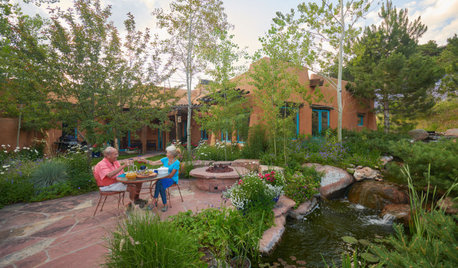
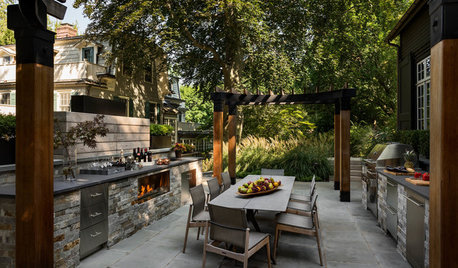
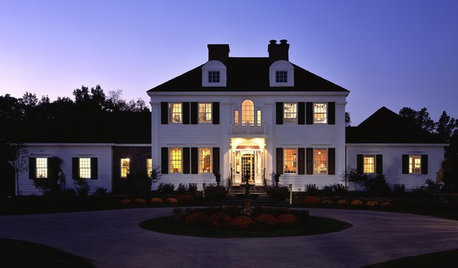
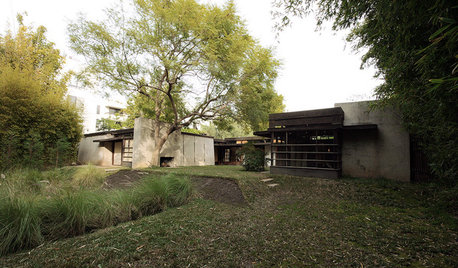

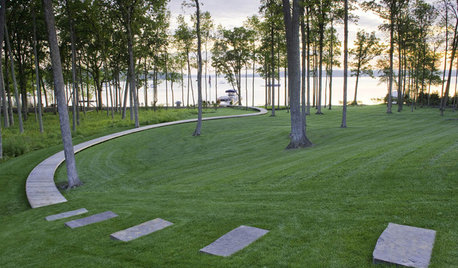
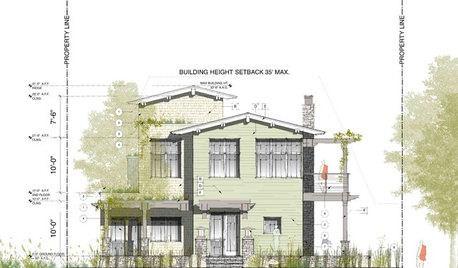

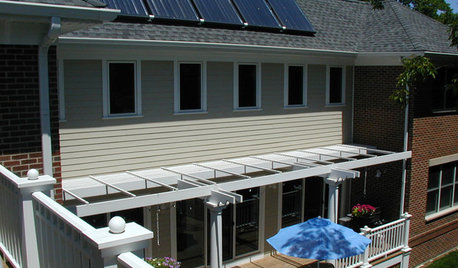











forensicmomOriginal Author